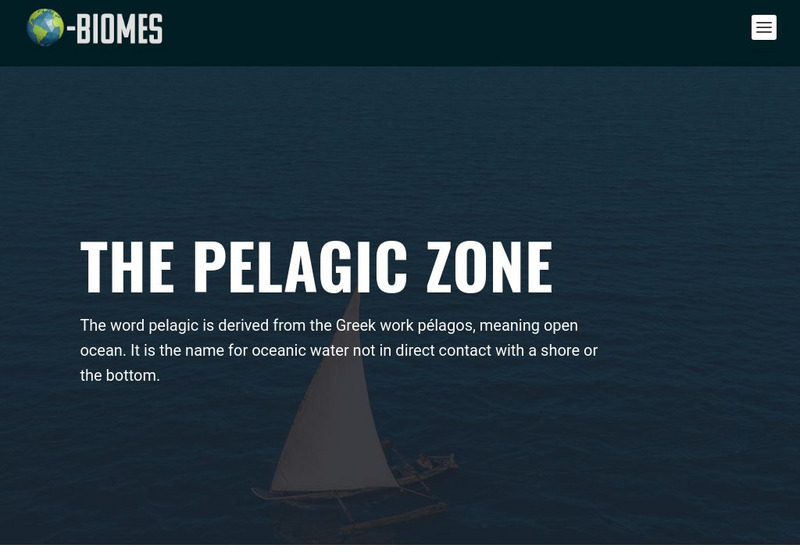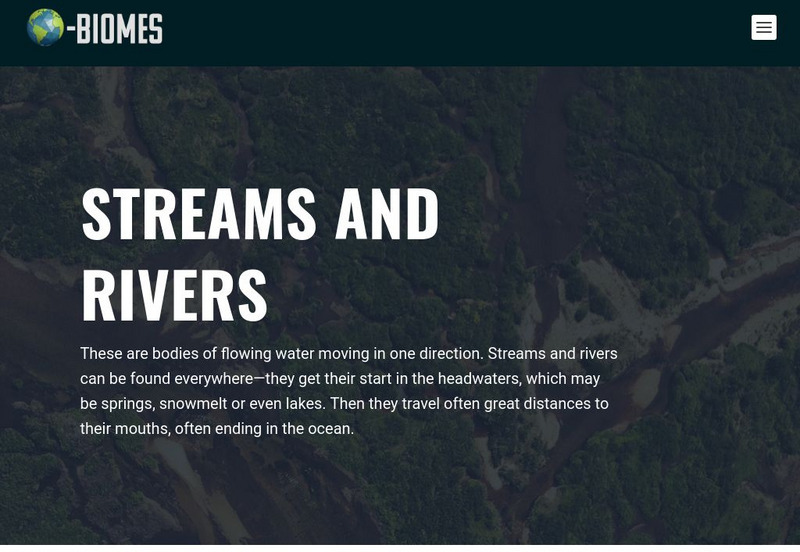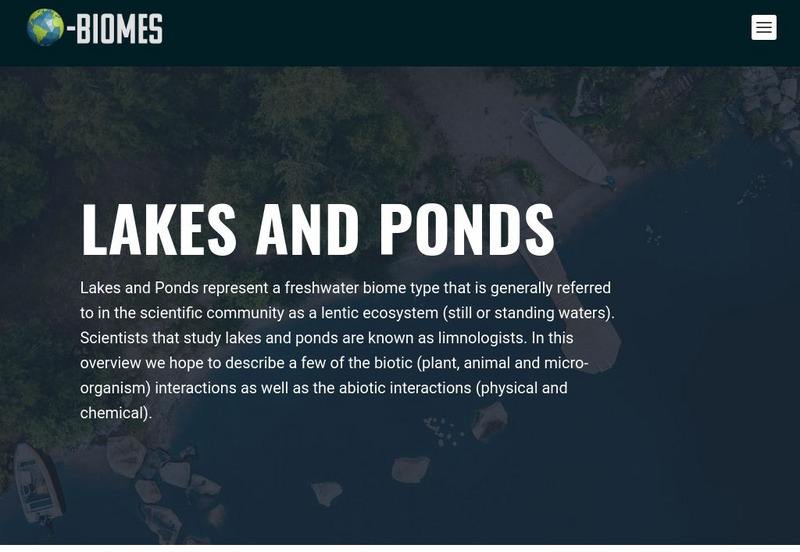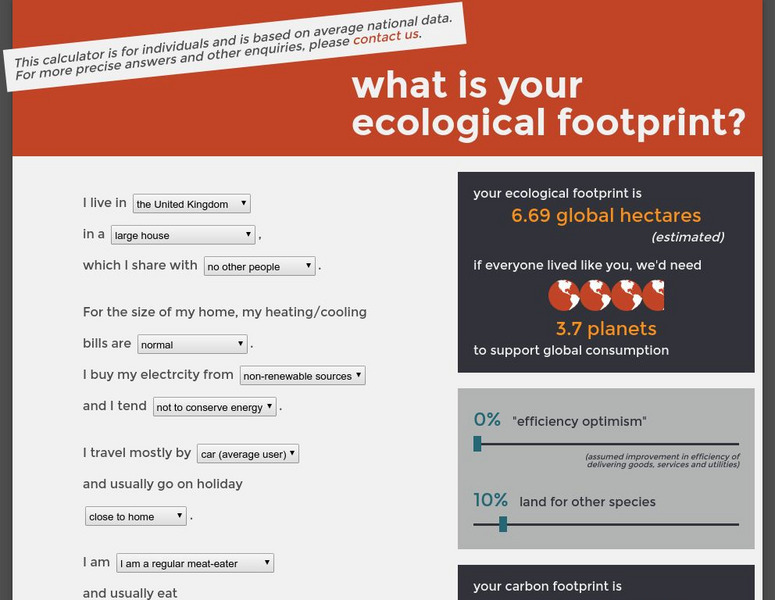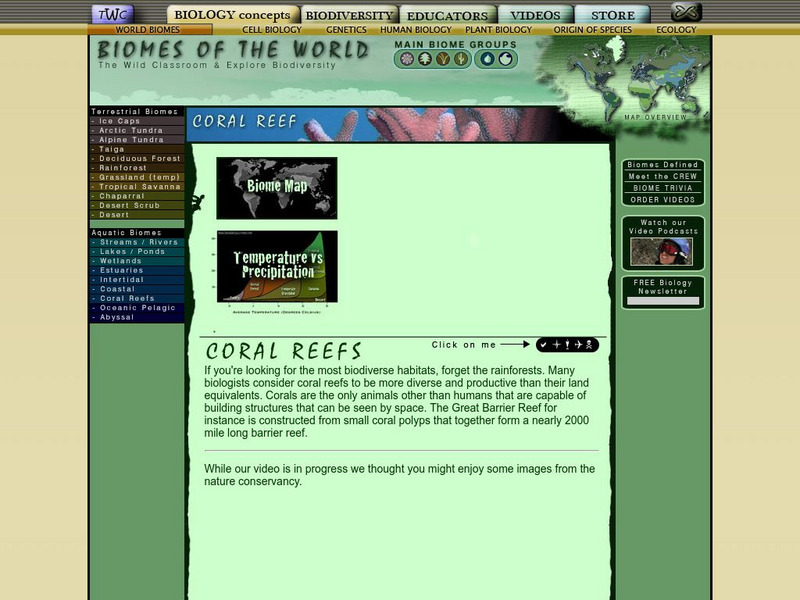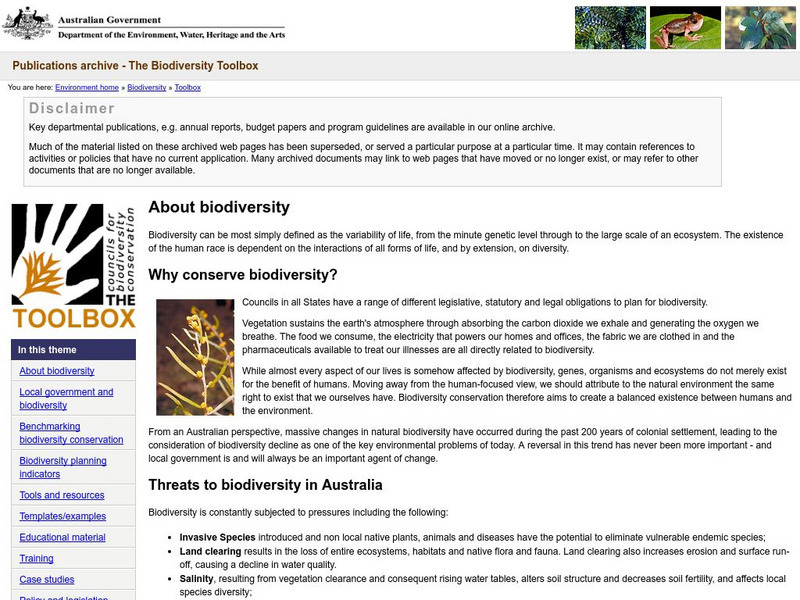Other
World Wildlife Fund: Climate Change
The World Wildlife Fund offers a comprehensive overview of climate change, also known as "Global warming." Content includes basic information about the process and its effect on the environment, the science to back it up, conservation...
Sea World Parks & Entertainment
Sea World: Killer Whales
Outlines the characteristics of the killer whale, including classification, habitat, behaviors, and conservation. Helps students identify with whales with a list of "Books for Young Readers." Information at a level of upper intermediate...
Sea World Parks & Entertainment
Sea World: Manatees
Outlines the characteristics of the manatee, including classification, habitat, behaviors, and conservation. Helps students identify with manatees with a list of "Books for Young Readers." Information at a level of upper intermediate or...
Other
Ontario Eco Schools
For all Ontario schools looking to incorporate in practice environmentally friendly routines while also educating and motivating students about their responsibility to conserve energy and protect the environment, Ontario EcoSchools...
NOAA
Noaa: Make an Edible Coral Reef [Pdf]
Read about and view pictures of coral reefs. Then make a cake model of a coral reef and eat your way to a better understanding of life around these marine environments.
The Wild Classroom
The Wild Classroom: Biomes of the World: Oceanic Pelagic Biome
Learn about the oceanic pelagic ecosystem. Find out about plants, animals, adaptations, and conservation efforts.
NOAA
Noaa: National Ocean Service Education: Nonpoint Source Pollution
Illustrated tutorial explains nonpoint source pollution and its role in the health of the environment. Students learn about different sources of pollution and how these pollutants contaminate the land, air, and water. Click on the links...
The Wild Classroom
The Wild Classroom: Biomes of the World: Streams and Rivers
Learn about stream and river ecosystems. Find out about plants, animals, adaptations, and conservation efforts.
The Wild Classroom
The Wild Classroom: Biomes of the World: Lakes and Ponds
Learn about lake and pond ecosystems. Find out about plants, animals, adaptations, and conservation efforts.
The Wild Classroom
The Wild Classroom: Biomes of the World: Estuaries Biome
Learn about estuary ecosystems. Find out about plants, animals, adaptations, and conservation efforts.
The Wild Classroom
The Wild Classroom: Biomes of the World: Intertidal Zone
Learn about the intertidal ecosystem. Find out about plants, animals, adaptations, and conservation efforts.
The Wild Classroom
The Wild Classroom: Biomes of the World: Coastal Ocean Biome
Learn about the coastal ecosystem. Find out about plants, animals, adaptations, and conservation efforts.
Canadian Wildlife Federation
Hinterland Who's Who: Seabirds
Get the facts about seabirds. This group of birds makes up about three percent of the various species, even though two-thirds of the Earth is covered in water. Learn some unique facts and characteristics of seabirds. Also included in...
Other
Florida International University Libraries: Reclaiming the Everglades
Reclaiming the Everglades is a collection of historical documents which, until recently. was only available by appointment at the holding library in Miami. It is comprised of all or part of sixteen collections that focus on the efforts...
PBS
Pbs News Hour Extra: Choosing an Automobile, Understanding Alternative Fuels
This lesson plan encourages students to look at alternative methods of fuel and explore the various impacts each has on the environment.
TeachEngineering
Teach Engineering: Hybrid Vehicle Design Challenge
This module is written for a first-year algebra-based physics class, though it could easily be modified for conceptual physics. It is intended to provide hands-on activities to teach the overarching concept of energy, as it relates to...
US Environmental Protection Agency
Epa: Land, Waste, and Cleanup Topics
This site is loaded with information on solid waste and hazardous waste. It includes industries' effects on the environment, waste programs, treatment, control, pollution prevention, recycling, and cleanup programs.
OneWorld UK
One World: Stop Life in Danger
Elementary students will appreciate the cartoon style fact clips as the evolution of life on earth is laid out. Diversity, survival of the fittest, and ideas to help the environment are all included. An entertaining site for younger...
Other
Rechargeable Battery Recycling Corporation: Call2 Recycle
This resource provides information about rechargeable batteries, recycling, and conservation.
Other
Best Foot Forward: Ecological Footprint Calculator
Measure your ecological footprint, and see how many land and resources you use in your everyday life. Find out how your choices affect the natural world, and then find ways to make changes in your lifestyle to help the environment.
Other
Canadian Parks and Wilderness Society: Nahanni
This resource provides information about the conservation of Nahanni National Park.
The Wild Classroom
The Wild Classroom: Biomes of the World: Coral Reef Biome
Learn about the coral reef ecosystem. Find out about plants, animals, adaptations, and conservation efforts.
Other
Biodiversity Tool Box: About Biodiversity
An extensive site detailing Australia's committment to biodiversity conservation, including a list of threats and proposed plans of action as outlined in the "Environment Protection and Biodiversity Conservation Act of 1999."
National Academies of Sciences, Engineering, and Medicine
The National Academies: What You Need to Know About Energy
This very comprehensive site aims to provide the latest, most accurate information available about energy, its consumption, sources of energy, alternative energy, impact on the environment, and conservation. One section focuses on the...
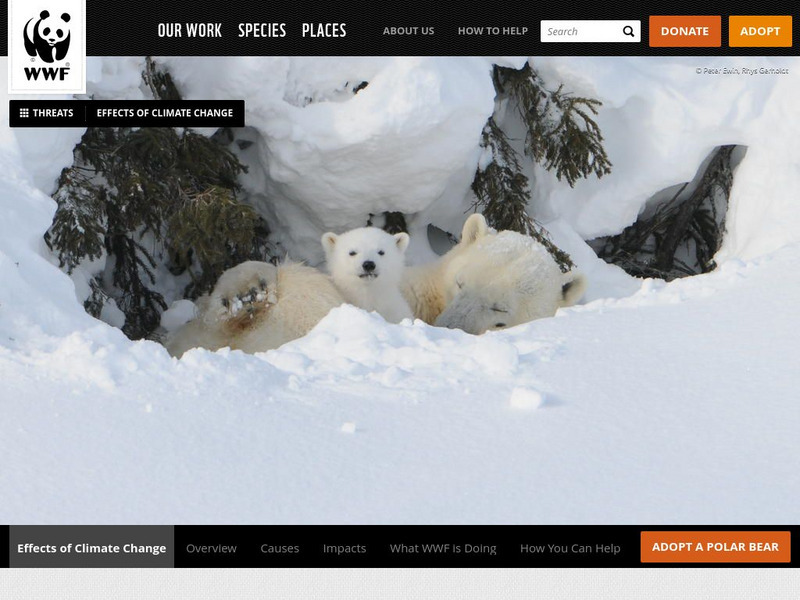
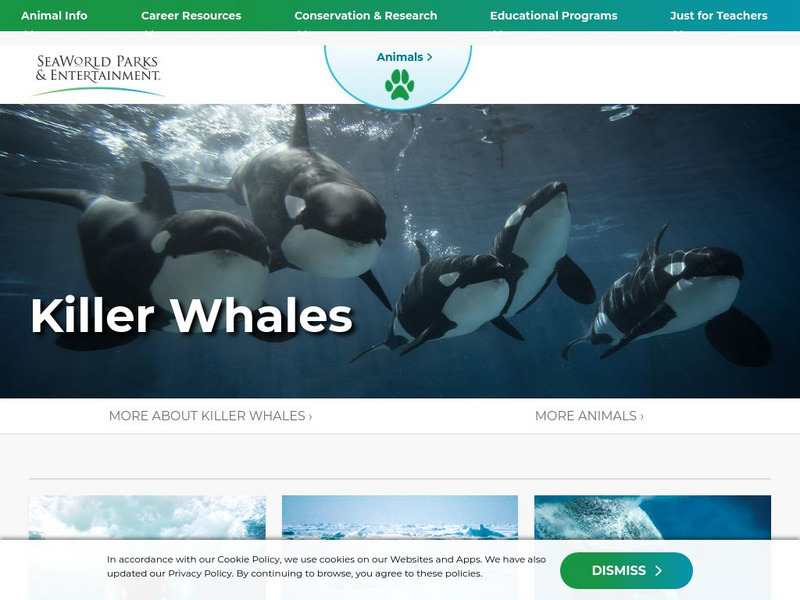
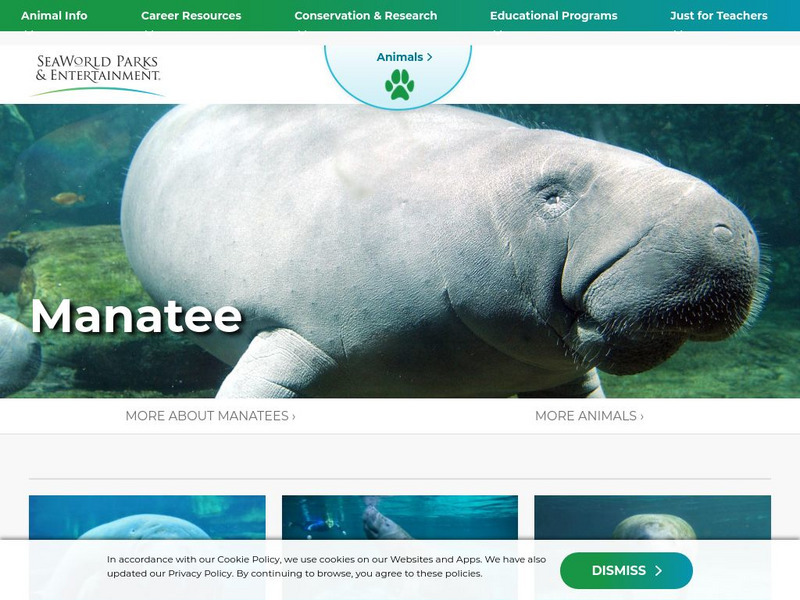
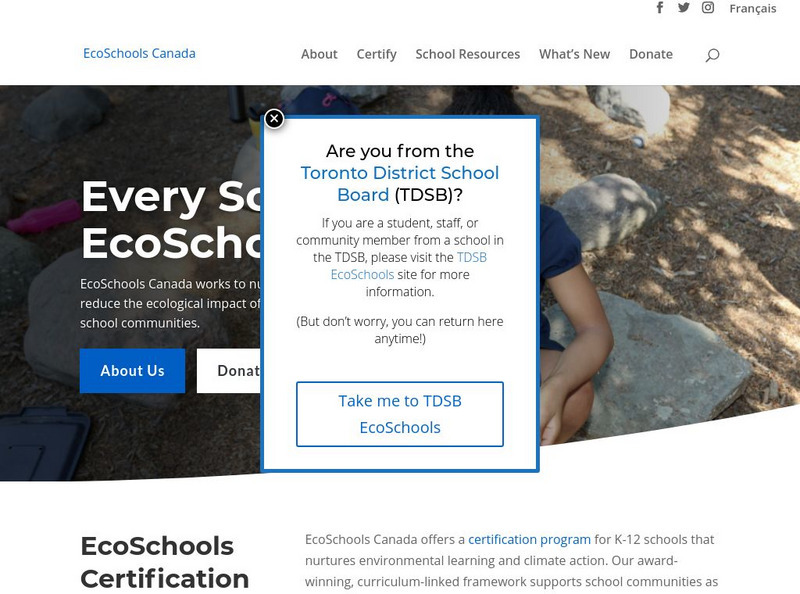
![Noaa: Make an Edible Coral Reef [Pdf] Activity Noaa: Make an Edible Coral Reef [Pdf] Activity](https://d15y2dacu3jp90.cloudfront.net/images/attachment_defaults/resource/large/FPO-knovation.png)
